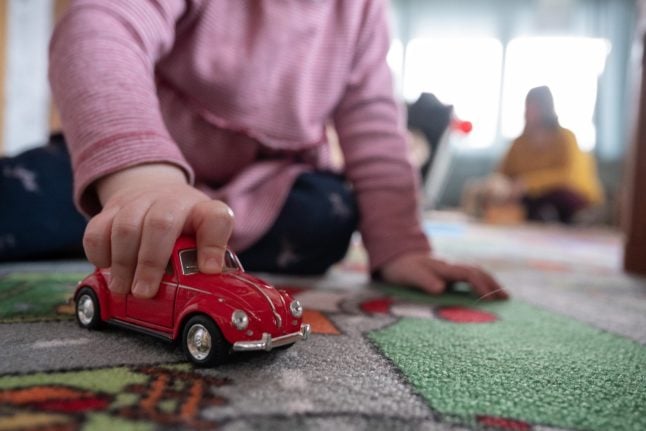The first school openings around Germany should be possible as early as the beginning of February, according to Britta Ernst, President of the Conference of Ministers of Education and Cultural Affairs (KMK).
The Brandenburg education minister told the Rheinische Post that the openings would only be possible, however, with a plan suited for the infection situation, for example with rotating classes.
This would likely initially only apply to final-year classes and entering year classes.
Warning against a new wave
Charité virologist Christian Drosten, however, warned against opening schools too early. Several studies now show that schoolchildren pose at least the same risk of infection as everyone else, he said.
The more infectious new British virus variant B.1.1.7 could cause a new wave, he said in his NDR podcast. Therefore, protective measures in Kitas and schools would have to be made dependent on the number of new infections.
Helge Braun, the head of the Chancellor's Office, also warned that the B.1.1.7 mutation would probably also have consequences for schools.
READ ALSO: Covid-19 mutation to become 'dominant virus form' in Germany
Schleswig-Holstein has so far been one the only state to prepare pupils, parents and teachers for all eventualities.
Decisions on opening schools from the beginning of February will be made “depending on the incidence of infection, the incidence levels and the development of the mutations of the virus, as well as the decisions taken by the federal and state governments,” it said.
In accordance with the Robert Koch Institute (RKI), Germany's northernmost state has set a clear limit for the statewide return to classroom instruction: If the number of infections statewide is significantly below the limit of 50 per 100,000 inhabitants in the past seven days.
Openings vary state by state
Ernst said that no state should base its decision on school openings on what other states are doing.
In view of the different levels of infection in Germany’s 16 states, she said it was “right for the states to make different use of the leeway offered to them”.
Most states are already doing this. In general, the requirement for in-person attendance has been scraped around Germany, and daily classes take place online from a distance
Some exceptions apply for pupils in the final years, i.e. for the 9th and 10th grades at secondary schools, as well as for the Abitur year of Gymnasiums.
Schools have also remained open for the “emergency care” of children and young people who are not adequately equipped at home, or whose parents have to go out to work.

A carer at a Kita in Schriesheim, Baden-Württemberg in June. Photo: DPA
READ ALSO: How can Germany improve its Kitas amid teacher shortage?
How long the school shutdown will last, however, varies from state to state. While some school ministers have decided to ditch compulsory attendance until February 14th, others hope for a gradual opening from the beginning of February.
Some states have already set up a clear plan for an earlier opening.
Rhineland-Palatinate is also planning on offering alternating classes again starting February 1st.
Baden-Württemberg was planning on opening Kitas on February 1st, but pushed the date back to at least February 18th after a coronavirus mutation was detected in 18 children and carers in a Freiburg Kita.
In Saxony, minister of education Christian Piwarz criticised that the lockdown was extended for a large number of pupils until mid-February.
“I very much hope that we will be able to reopen Kitas and schools in February, at least in limited regular operation,” Piwarz announced at the end of last week.
“The children and young people are suffering a lot from the lockdown. A longer closure of educational institutions is hardly reasonable for children and parents.”
In Berlin, schools and Kitas are to remain closed until February 14th.
Concern about distance learning for too long
The debate on when children and young people should be allowed to attend school again is controversial.
Federal Family Minister Franziska Giffey (SPD) called for “opening perspectives” for schools and Kitas from mid-February. The longer the closures continue, “the higher the price will be,” she said, adding that child protection is also a form of health protection.
KMK President Ernst also stresses that distance learning over a long period of time is not good for primary school children in particular – a concern shared by many education experts.
However, the German Academy for Paediatrics and Adolescent Medicine, for example, called for a nationwide hygiene plan and a clear improvement of infection protection at schools – and also on the way to and from school – before schools are opened.



 Please whitelist us to continue reading.
Please whitelist us to continue reading.
In our area the schools are open with pupils attending different days. No problems.